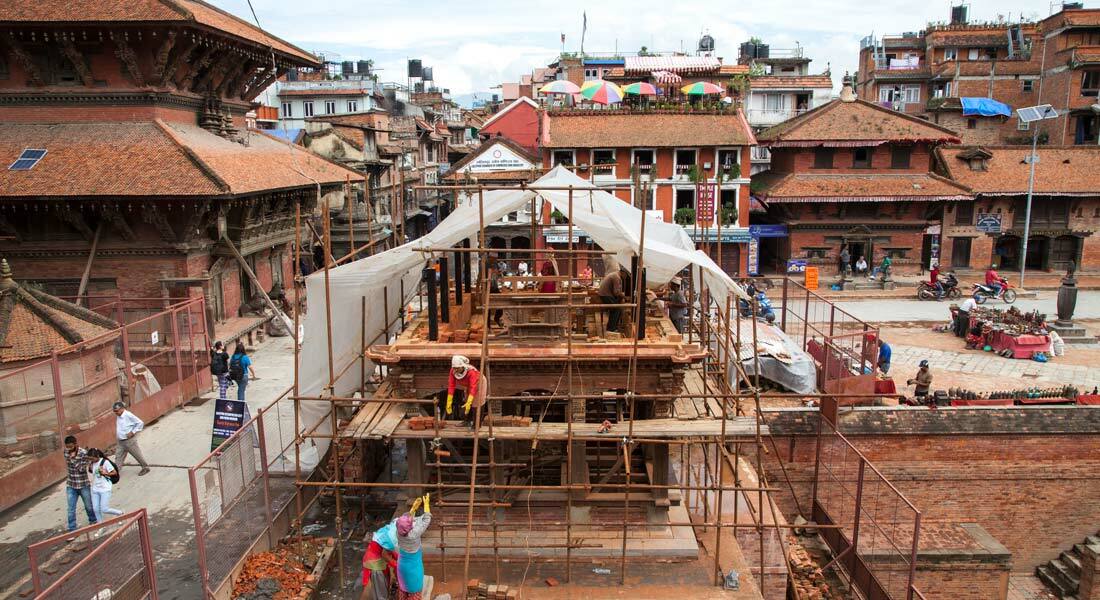Sign up to receive our latest COPE stories, events and news about education, research and opportunities.
Disaster Recovery Planning and Development
This course is a part of

This course introduces fundamentals of disaster recovery principles and disaster risk reduction. During the course, we cover pre-disaster recovery planning and assessment of post-disaster recovery needs.
You will get insight into health interventions; reconstruction and physical rehabilitation; exit and handover strategies; and monitoring and evaluation in recovery planning. We will discuss how recovery relates to emergency response, preparedness, mitigation and long-term development planning.
Course content
- Introduction to recovery principles and risk reduction in the recovery phase.
- Pre-disaster recovery planning and post disaster recovery needs assessment.
- Early recovery as an important linking stage between relief and response phase and recovery and development.
- Reconstruction and physical rehabilitation
- Psycho-social and mental health interventions
- Exit and hand over strategies in recovery planning
For more details about the course, please refer to the course curriculum.
View all courses on:
There is sometimes a tendency in the humanitarian sector to think of each crisis as completely new and novel. The Master of Disaster Management gave me the skills to say, 'What other situations can we look back and learn from, for what is happening right now?' I gained skills for looking at such situations with an academic perspective that I had not had before, and this is definitely an advantage for me in my current position as well.
Course director on »Disaster Recovery Planning and Development«

Emmanuel Raju
Associate Professor and Head of Studies
Course details for »Disaster Recovery Planning and Development«
Dates and examination
Course dates
16 November – 4 December 2026
The course is available every year.
Examination
Please find the exam dates in the exam plan.
Learning outcomes
During this course, you will acquire the conceptual basis from which to appreciate the complexity of the recovery environment. Further, you will understand linkages between development and risk reduction in recovery processes; know the Recovery Guiding Principles; and know how to operate these in pre- and post-disaster recovery planning.
On completion of the course, you will be able to:
-
understand the linkages between development and risk reduction in recovery processes, as well as the tools, mechanisms, and key relationships involved in pre-disaster recovery planning
-
apply concepts, standards, principles, and methods of recovery planning and operations to case studies, while developing the ability to engage with disaster professionals across sectors and disciplines
-
critically evaluate the strengths and limitations of existing Early Recovery and Recovery mechanisms, and apply tools for team building, stress management, and demonstrate knowledge of intercultural and interdisciplinary communication, including negotiation and compromise.
Admission criteria
You must meet the following criteria to be admitted to this course:
- Hold a relevant bachelor degree or equivalent.
- Have a minimum 2 years of relevant job experience.
- Be proficient in English.
Find detailed information in the admission criteria on Master of Disaster Management.
Priority is given to enrolled students
This course is offered as a compulsory course in the Master of Disaster Management programme. Priority is given to students already enrolled. Once the enrolled students have been admitted to the course, the remaining seats are distributed on a first-come, first-served basis.
Tuition fees
EU/EEA citizens:
Master student: 16,500 DKK
Single course student: 25,000 DKK
Non-EU/EEA citizens:
Master student: 22,000 DKK
Single course student: 33,000 DKK
More information
All course information is available in the course curriculum:Place
University of Copenhagen
City Campus
Øster Farimagsgade 5
1353 Copenhagen
Denmark
Contact
Christine Gulstad
Study Administration Officer
lifelonglearning@adm.ku.dk
Tel: +45 35 32 12 73


